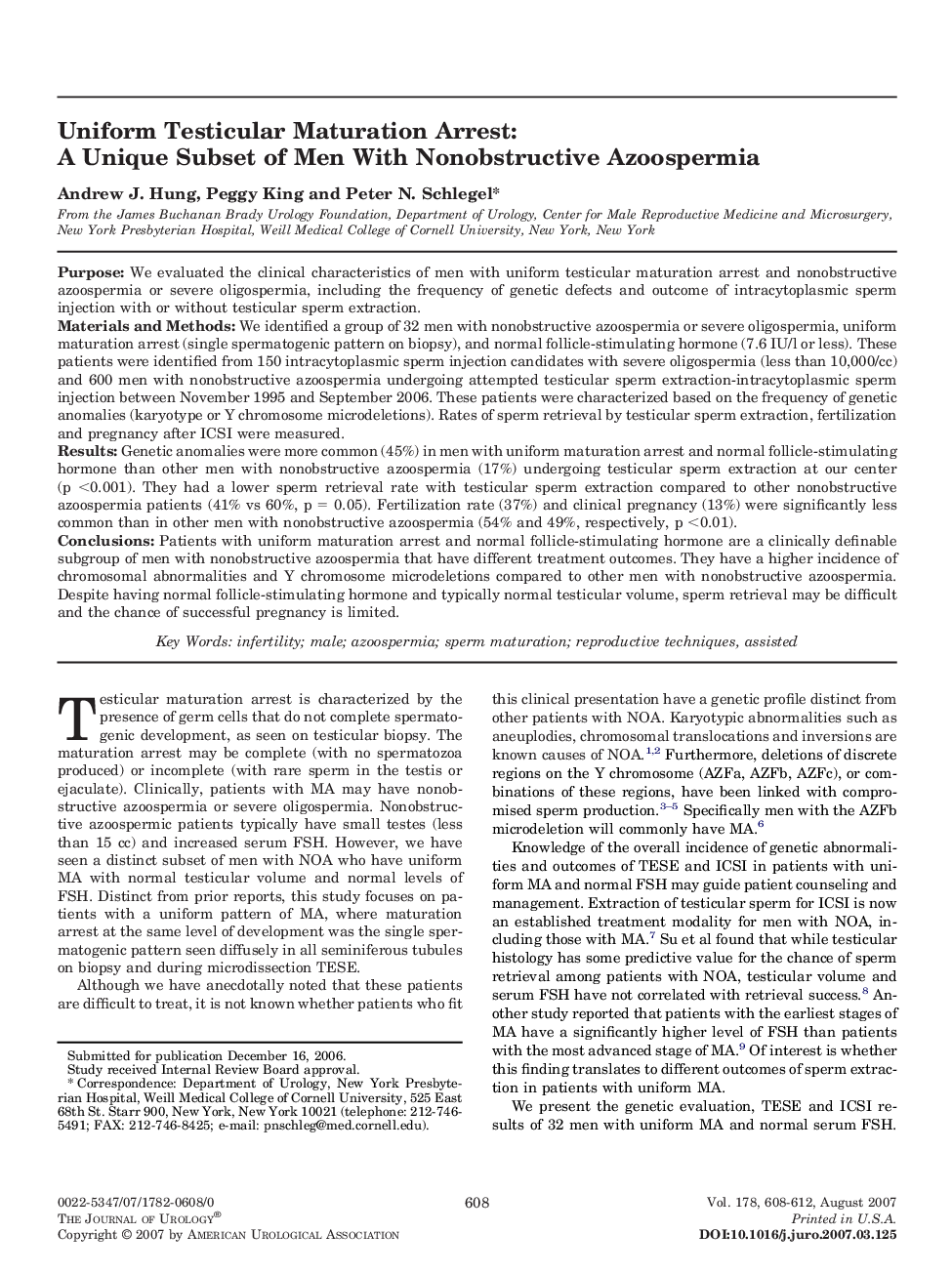| Article ID | Journal | Published Year | Pages | File Type |
|---|---|---|---|---|
| 3879126 | The Journal of Urology | 2007 | 5 Pages |
PurposeWe evaluated the clinical characteristics of men with uniform testicular maturation arrest and nonobstructive azoospermia or severe oligospermia, including the frequency of genetic defects and outcome of intracytoplasmic sperm injection with or without testicular sperm extraction.Materials and MethodsWe identified a group of 32 men with nonobstructive azoospermia or severe oligospermia, uniform maturation arrest (single spermatogenic pattern on biopsy), and normal follicle-stimulating hormone (7.6 IU/l or less). These patients were identified from 150 intracytoplasmic sperm injection candidates with severe oligospermia (less than 10,000/cc) and 600 men with nonobstructive azoospermia undergoing attempted testicular sperm extraction-intracytoplasmic sperm injection between November 1995 and September 2006. These patients were characterized based on the frequency of genetic anomalies (karyotype or Y chromosome microdeletions). Rates of sperm retrieval by testicular sperm extraction, fertilization and pregnancy after ICSI were measured.ResultsGenetic anomalies were more common (45%) in men with uniform maturation arrest and normal follicle-stimulating hormone than other men with nonobstructive azoospermia (17%) undergoing testicular sperm extraction at our center (p <0.001). They had a lower sperm retrieval rate with testicular sperm extraction compared to other nonobstructive azoospermia patients (41% vs 60%, p = 0.05). Fertilization rate (37%) and clinical pregnancy (13%) were significantly less common than in other men with nonobstructive azoospermia (54% and 49%, respectively, p <0.01).ConclusionsPatients with uniform maturation arrest and normal follicle-stimulating hormone are a clinically definable subgroup of men with nonobstructive azoospermia that have different treatment outcomes. They have a higher incidence of chromosomal abnormalities and Y chromosome microdeletions compared to other men with nonobstructive azoospermia. Despite having normal follicle-stimulating hormone and typically normal testicular volume, sperm retrieval may be difficult and the chance of successful pregnancy is limited.
